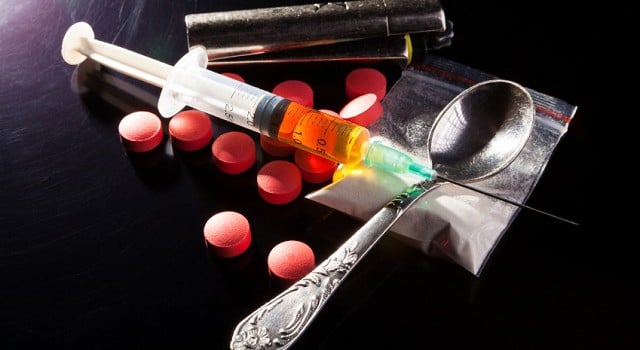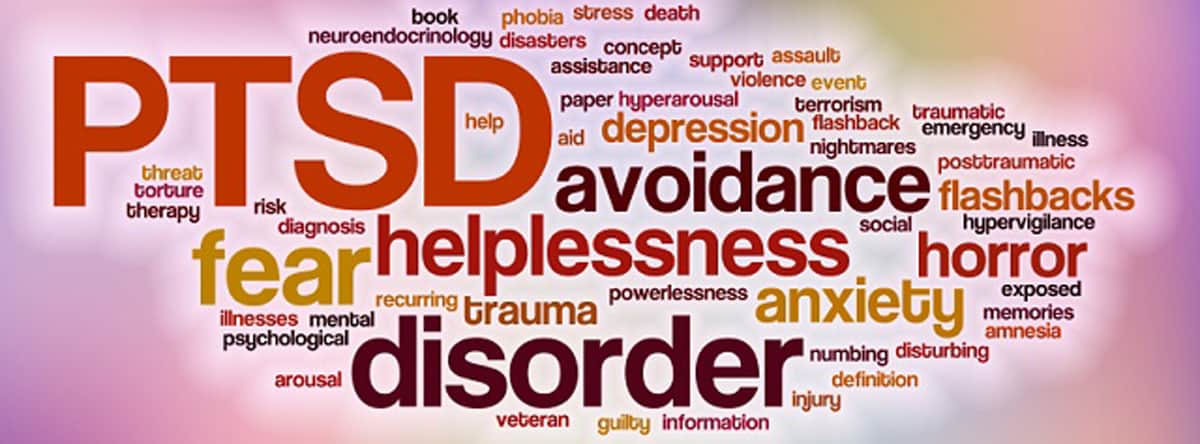If you are struggling with a substance abuse issue, there can be a deeper rooted issue that is keeping you stuck in your addiction. More often than not, people who abusing drugs and alcohol are also struggling with a co-occurring mental disorder. If you happen to have a co-occurring disorder–which is also commonly known as a dual diagnosis–the road to recovery presents more challenges. Oftentimes mental disorders and substance abuse can be so intertwined with each other it can be difficult for treatment professionals to know which came first–the addiction or the mental illness.
One of the most common mental disorders that can occur with drug addiction is post-traumatic stress disorder (PTSD). PTSD is one the most emotionally debilitating mental disorders that a person can experience, and those who have it feel intense anxiety, are haunted by intrusive memories and constantly live through nightmarish flashbacks that severely impact how they live day-to-day.
Whether a person has a diagnosed case of PTSD or have lived with it for years without a proper diagnosis, turning to drugs and alcohol becomes the most common solution to try and minimize pain and to gain some semblance of control in their lives. If you are struggling with both PTSD and a substance abuse issue, it becomes extremely important that you understand what PTSD is and how treating this disorder will help you truly overcome your drug addiction.
What is PTSD?

PTSD is a mental condition in which someone experiences a tremendous amount of stress or anxiety after witnessing a traumatic event or being engaged in a traumatic event. The physical or psychological trauma that is experienced leaves an individual feeling powerless and out of control. Some of the most common causes of the condition include involvement in military combat, being the victim of a violent physical or sexual assault, experiencing a natural disaster or being the victim of abuse as a child.
The nightmares and flashbacks that are associated with this mental condition typically involve crises that have never been fully resolved in the individual’s psyche. An example of this is a soldier who was taken prisoner in a battle and couldn’t fight his captors might have flashbacks to the incident as a way to work through unresolved anger and fear. Another common example is a child who felt powerless when they were sexually abused by a parent or relative.
Common symptoms of PTSD can include nightmares, flashbacks as well as the avoidance of things related to the traumatic event. Additionally, people with PTSD experience severe bouts of anxiety, sleeplessness, aggressive behavior and angry outbursts. For many who suffer from PTSD, the worst thing about the disorder is that the symptoms can strike at any time–and especially most commonly when they are reminded of the events in question.
The Link Between PTSD and Drug Addiction

For those who suffer from PTSD, the symptoms that they undergo can be extremely distressing. The stress that people can feel with PTSD can affect them to such a degree they are often unable to cope with their feeling and will turn to drugs or alcohol as a means of escape. According to information on the Dual Diagnosis website, self-medicating has led to very high percentages of PTSD sufferers with alcohol dependence (over 50 percent) and drug dependence (over 30 percent).
Another way in which drug use and PTSD are intertwined centers on the phenomenon of endorphin withdrawal. When an individual experiences a traumatic event, their brain will produce endorphins as a way of coping with the extreme stress of that moment. When the event is over, the body experiences will go through endorphin withdrawal, and it features some of the same symptoms as seen when someone is withdrawing from drugs or alcohol. In order to “replace” the feelings that were experienced by the release of endorphins, people will turn to substances. While they will feel more peaceful and on an even keel, those feelings are short-lived.
Treatment for PTSD and Substance Abuse
If you have a dual diagnosis of PTSD and substance abuse, you need to find a drug treatment program that features intensive support from psychiatric professionals, addiction professionals and allows the active involvement of family members and friends. People who are battling PTSD and a drug addiction may feel extreme reluctance in regards to seeking treatment. Many who experience PTSD live with intense guilt and shame, and their addictive behavior may add to their guilt.
Even if they do accept treatment and enter a treatment facility, they may have trouble finding the needed motivation to use their recovery resources in order to address and overcome their substance abuse issues. That is why it is of utmost importance that you if are struggling with these co-occurring disorders, you have the support and encouragement from an experienced and integrated treatment team.
The important components of a quality dual diagnosis treatment programs needs to include the following:
- Individual psychotherapy and group therapy to help teach clients how to handle the triggers that lead to substance abuse
- Couples therapy or family counseling to help strengthen relationships and to help educate each member of the family members about drug addiction and mental illness
- Treatment programs need to encourage active membership in a 12-step group or similar sober support group to strengthen the individual’s network of support
- Proper and appropriate medication therapy with anti-addiction drugs or psychotherapeutic medications in addition to other interventions when deemed necessary and appropriate.
Do You Need Further Information on Dual Diagnosis Treatment?
If you or a loved one is struggling with PTSD and addiction or have other mental health issues occurring with substance abuse, Guardian Recovery Network features the integrated drug programs, experienced treatment professionals and compassionate care that can help you recover. All of our treatment programs geared for co-occurring disorders are evidence- based, proven to work and are backed by research.
Are you ready to change your life for the better? Pick up the phone and call Guardian Recovery Network toll-free today.




















